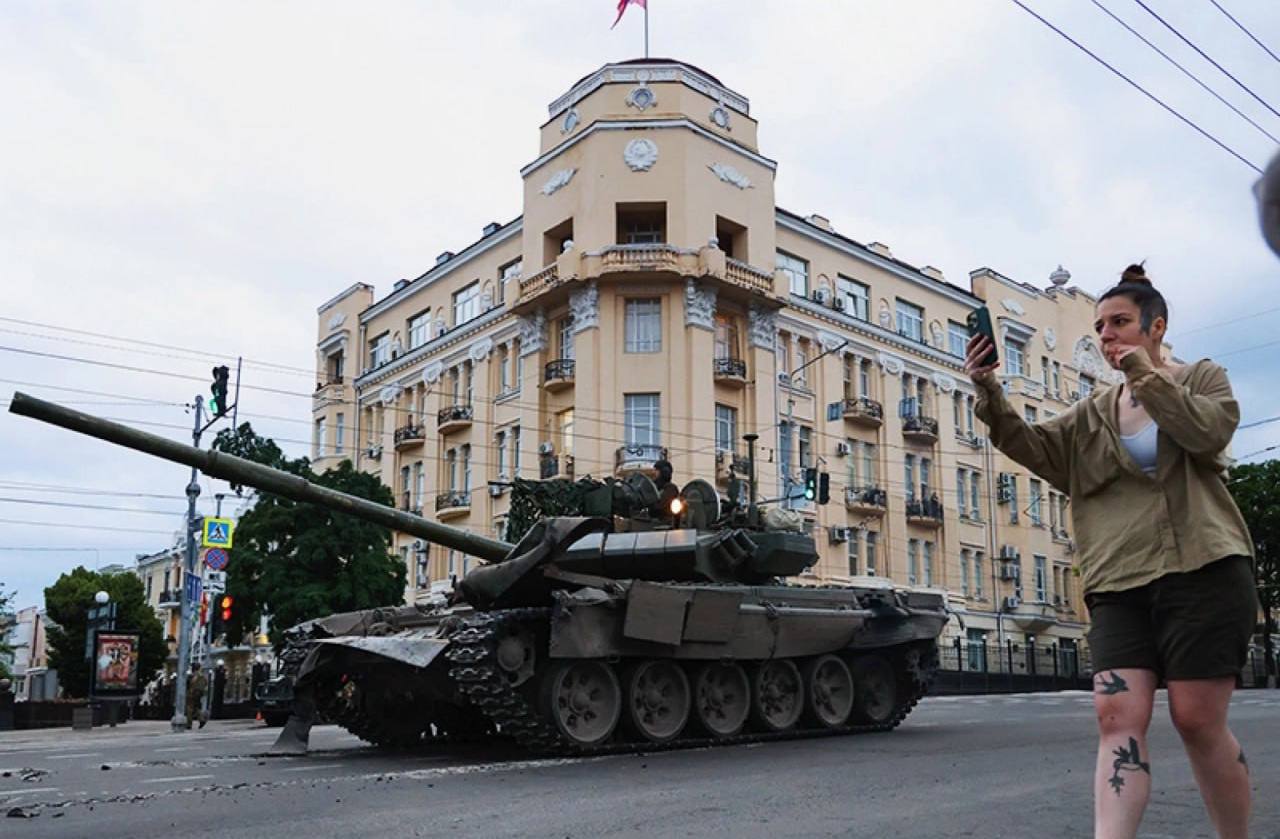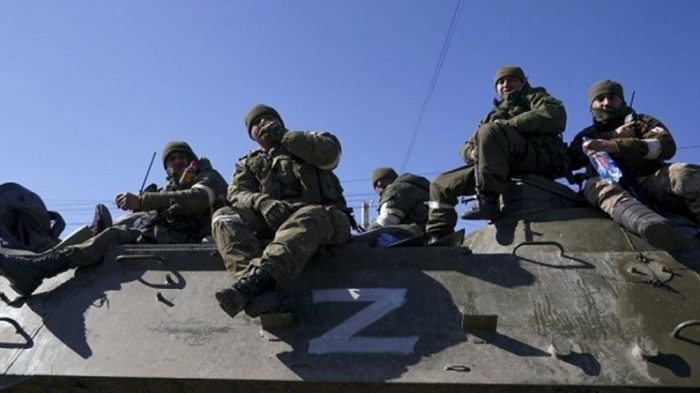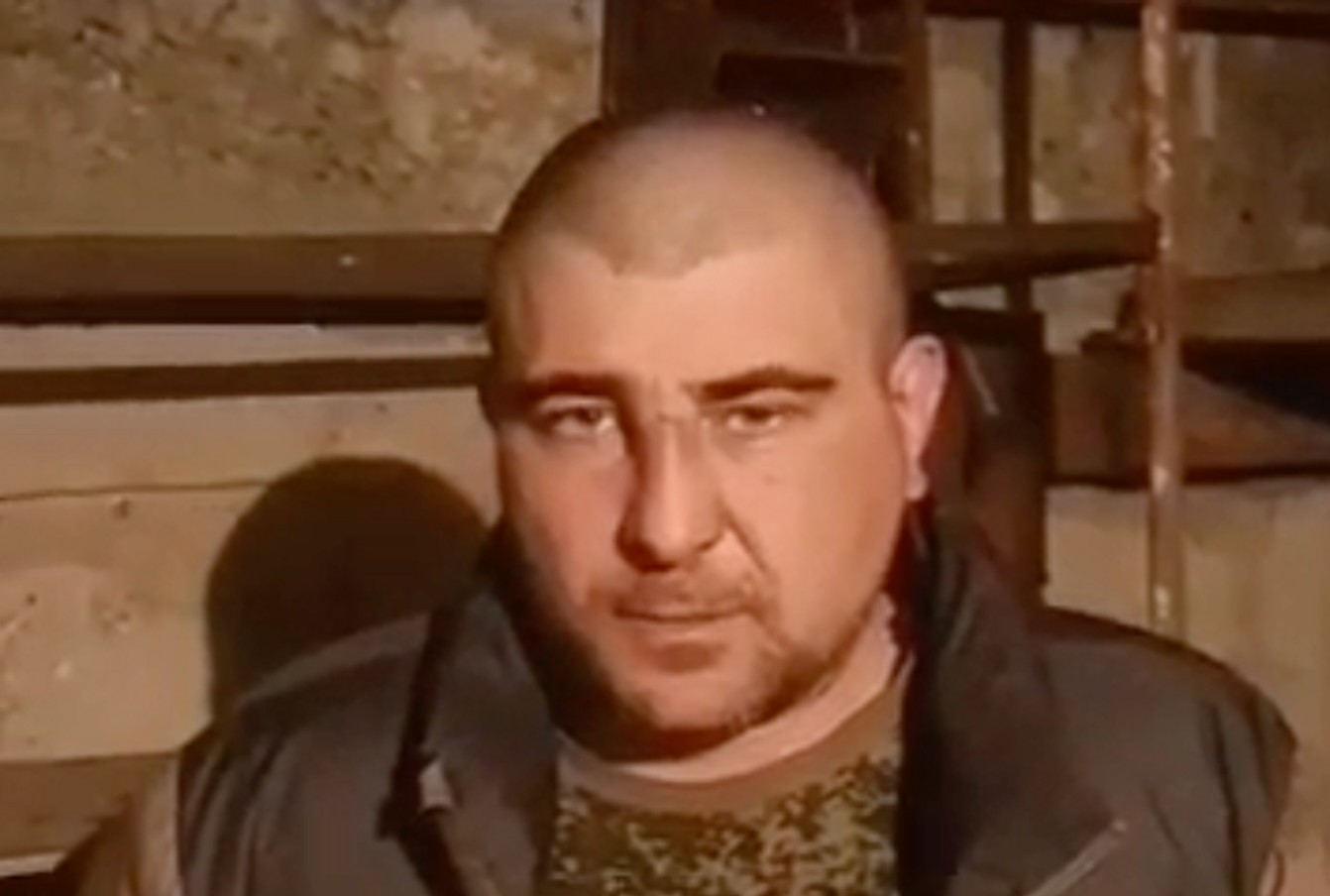The Russian human rights group Gulagu.net, which started by investigating torture in Russian prisons and during Russia's full-blown invasion of Ukraine earned fame for sharing information from Russian insiders, states that PMC Wagner's armed rebellion was an operation planned since autumn 2022, and that an operation to seize Russian strategic nuclear weapons sites is unfolding.
"While the Russian army was at war with the Ukrainian Armed Forces, and the FSB and Interior Ministry were fighting the intelligent opposition and anti-war activists inside the country, a real threat grew up behind the security forces - a fully-equipped terrorist organization that unites thousands of mercenaries and unprincipled killers, ready to do anything to profit and expand their influence," Gulagu.net wrote.
The project notes that together with its founder Vladimir Osechkin, it warned about the threat of a military coup and conspiracy involving Wagner financier Yevgeny Prigozhin, invasion forces leader General Surovikin, and a number of high-ranking law enforcement officers and officials.
Gulagu.net claims that the Security department of Wagner questioned mercenaries returning from operations in the Central African Republic, Mali, Syria, and Ukraine if they were ready to participate in actions inside Russia, and reminds that it wrote about the risks of a military coup based on its sources in the Russian FSB.
"However, the Russian authorities not only failed to suppress the inhumane and criminal methods and activities of the Wagner PMCs, but continued to flirt with them, financing and arming them," Gulagu.net writes.
In the same message, the project says Putin is a dictator yet calls upon the Russian authorities to initiate criminal proceedings against Prigozhin, Wagner founder and (possibly) former commander Dmitry Utkin, Head of invasion operations Sergei Surovikin, and other associates "in connection with their involvement in the military rebellion, war crimes, the murder of tens of thousands of people during the 'Bakhmut meatgrinder,' more than 100 facts of extrajudicial executions and brutal killings of Russians and captive Ukrainians." It also calls on Russians not to enroll in Wagner.
In another message, Gulagu.net cites a source as saying that Wagner plans to seize 12 objects of Russia's nuclear arsenal, claiming that the enigmatic Wagner commander Dmitry Utkin is responsible for this part of the armed coup.
The source also informed that Wagner is preparing Rostov-on-Don, captured by the mercenaries on 24 June, against a long siege, and the city faces the fate of becoming a Bakhmut 2.o. This east-Ukrainian city was razed to the ground during many months of Russian assaults spearheaded by Wagner.
Another source informed Gulagu.net that Prigozhin and Utkin are awaiting reinforcements from the military units of the Donetsk and Luhansk "People's Republics," two puppet entities Russia set up in eastern Ukraine in 2014: "a number of units decided to go over to [Wagner's] side and return to Russia to 'restore order'."
"There is a significant risk that Vladimir Putin and the Defense Ministry will lose control over part of the nuclear arsenal, mines, and mobile launchers in the next two days. The question is whether they can protect the combat control and encryption centers from the rebellious GUR members and Wagner PMC," Gulagu.net sums up.
Wagner mutiny: what happened earlier
In the night of 23 June, Wagner financier Yevgeny Prigozhin accused the Russian MoD of striking a Wagner camp and announced a “march for justice,” vowing to “stop” Moscow’s top military leadership.
Russia’s official bodies denied any accusations of a strike on Wagner’s rear; the Russian FSB opened a criminal case against Prigozhin and Russia’s top brass called upon Wagner fighters to defy Prigozhin’s orders.
In the morning of 24 June, Prigozhin, who started his career as "Putin's chef," claimed control over military objects in Rostov-on-Don, a city that serves as the headquarters for Russia’s war efforts in Ukraine, stating that the Chief of General Staff ran away when he saw Wagner fighters approaching.
A conflict between Prigozhin and the Russian MoD has been months in the making, and Russian military leaders have sought to limit the role of the leader of Wagner, a private military company that has played a key role in Russia’s assault on Ukrainian cities.
Prigozhin had defied a demand by Russian Defense Ministry that Wagner Group members sign contracts directly, highlighting a deepening conflict within the Russian establishment. Instead, Prigozhin drafted his own “contract” and said he was awaiting an answer from Russia’s military leadership for it. Meanwhile, the deadline for the volunteer fighters to sign contracts with the MoD, 1 July, “is likely to be a key way-point in the feud,” the British intelligence assessed.
Vladimir Putin has vowed to stop the "armed rebellion" of Yevgeny Prigozhin.
Wagner's columns are reportedly moving on Moscow after bypassing Voronezh.
The UK Intelligence has called Prigozhin's uprising the greatest recent challenge to the Russian state.
Prigozhin has refused to lay down arms and said that Wagner mercenaries were the true "patriots" of Russia.
The Russian media outlet Vazhnye Istorii wrote, referring to its sources in the Presidential Administration, that the Kremlin tried to negotiate with Prigozhin but got rejected.



